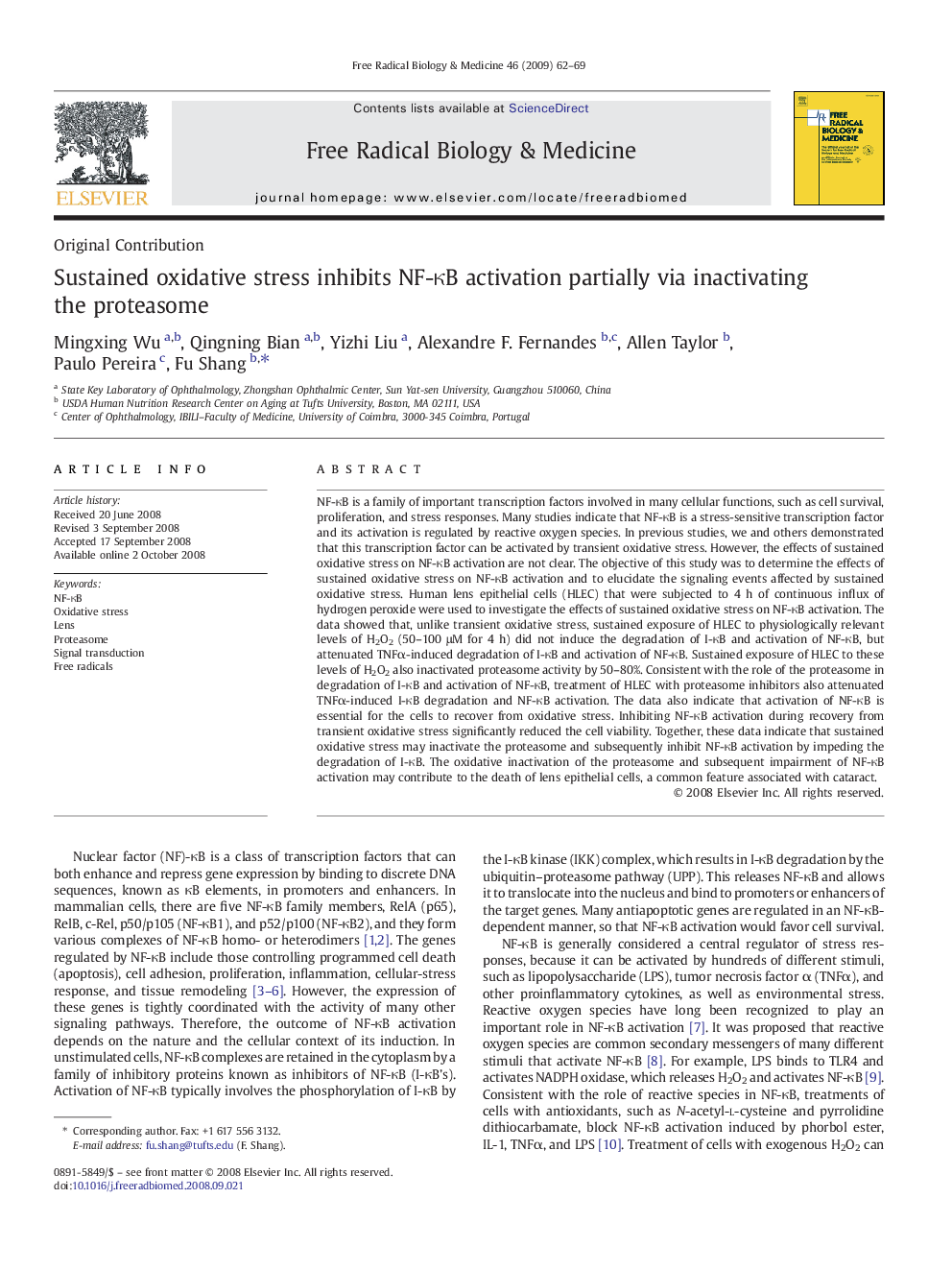| کد مقاله | کد نشریه | سال انتشار | مقاله انگلیسی | نسخه تمام متن |
|---|---|---|---|---|
| 1910365 | 1046767 | 2009 | 8 صفحه PDF | دانلود رایگان |

NF-κB is a family of important transcription factors involved in many cellular functions, such as cell survival, proliferation, and stress responses. Many studies indicate that NF-κB is a stress-sensitive transcription factor and its activation is regulated by reactive oxygen species. In previous studies, we and others demonstrated that this transcription factor can be activated by transient oxidative stress. However, the effects of sustained oxidative stress on NF-κB activation are not clear. The objective of this study was to determine the effects of sustained oxidative stress on NF-κB activation and to elucidate the signaling events affected by sustained oxidative stress. Human lens epithelial cells (HLEC) that were subjected to 4 h of continuous influx of hydrogen peroxide were used to investigate the effects of sustained oxidative stress on NF-κB activation. The data showed that, unlike transient oxidative stress, sustained exposure of HLEC to physiologically relevant levels of H2O2 (50–100 μM for 4 h) did not induce the degradation of I-κB and activation of NF-κB, but attenuated TNFα-induced degradation of I-κB and activation of NF-κB. Sustained exposure of HLEC to these levels of H2O2 also inactivated proteasome activity by 50–80%. Consistent with the role of the proteasome in degradation of I-κB and activation of NF-κB, treatment of HLEC with proteasome inhibitors also attenuated TNFα-induced I-κB degradation and NF-κB activation. The data also indicate that activation of NF-κB is essential for the cells to recover from oxidative stress. Inhibiting NF-κB activation during recovery from transient oxidative stress significantly reduced the cell viability. Together, these data indicate that sustained oxidative stress may inactivate the proteasome and subsequently inhibit NF-κB activation by impeding the degradation of I-κB. The oxidative inactivation of the proteasome and subsequent impairment of NF-κB activation may contribute to the death of lens epithelial cells, a common feature associated with cataract.
Journal: Free Radical Biology and Medicine - Volume 46, Issue 1, 1 January 2009, Pages 62–69